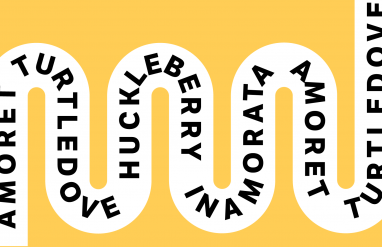Everyone can use a little bit of inspiration every once in a while. The word inspiration ultimately comes from the Latin inspīrāre meaning “to breathe into.” Whether you are searching for creative spark or something to help you get through a long day, words of wisdom from philosophers, scientists, writers, and others can be like a breath of fresh air. The following inspirational quotes remind us to appreciate the world around us, be bold, and take the good with the bad.
1.
You define your own life. Don’t let other people write your script.
—Oprah Winfrey, “The Top 20 Things Oprah Knows for Sure,” April 14, 2011
define
This quote is a classic example of Oprah Winfrey’s famous, down-to-earth advice. The verb define here means “to explain or identify the nature or essential qualities of.” It comes from the Latin dēfīnīre meaning “to limit, define.” When we define ourselves, we assert our self-understanding and our boundaries (“limits”).
2.
Around us, life bursts forth with miracles—a glass of water, a ray of sunshine, a leaf, a caterpillar, a flower, laughter, raindrops. If you live in awareness, it is easy to see miracles everywhere. Each human being is a multiplicity of miracles.
—Thích Nhất Hạnh, “A Life of Miracles,” 2012
multiplicity
A key source of inspiration are the small things found in the world around us. In this quote, Buddhist monk Thích Nhất Hạnh talks about a “multiplicity of miracles.” Multiplicity means “a large number or variety.” The use of multiplicity here recalls the quote from American poet Walt Whitman: “I am large, I contain multitudes.” In other words, people are complicated—and that’s a good thing.
3.
When we drop fear, we can draw nearer to people, we can draw nearer to the earth, we can draw nearer to all the heavenly creatures that surround us.
—bell hooks, “bell hooks and John Perry Barlow Talk ‘Prana in Cyberspace,’ ” Lion’s Roar, February 8, 2018 [1995]
heavenly
Academic and writer bell hooks echoes some of the same sentiment as Thích Nhất Hạnh in her quote about the power of letting go of fear. hooks describes the world around us as full of heavenly creatures. Heavenly can refer literally to “of in the heavens,” but it is also used figuratively to mean “resembling or befitting heaven; blissful; beautiful.” This word use is interesting, because it suggests that everyday things can be “divine or celestial.”
4.
The important thing is not to stop questioning. Curiosity has its own reason for existence. One cannot help but be in awe when he contemplates the mysteries of eternity, of life, of the marvelous structure of reality. It is enough if one tries merely to comprehend a little of this mystery every day.
—Albert Einstein, “Old Man’s Advice to Youth,” LIFE Magazine, 1955
awe
Another thinker who also encouraged us to take time to marvel at the miracles of the universe was scientist Albert Einstein. In this quote, Einstein talks about awe, “an overwhelming feeling of reverence, admiration, fear, etc. produced by that which is grand, sublime, extremely powerful, or the like.” While in Middle English, awe mostly referred to dread at divine power, by the 18th century awe came to refer to a feeling of reverential wonder at the beauty and power of nature.
5.
Nothing in life is to be feared, it is only to be understood.
—Marie Skłodowska-Curie, as quoted in Our Precious Habitat by Melvin A. Benarde, 1973
understood
Another inspirational scientist is Marie Curie, known for her discoveries in the field of radioactivity. Curie is thought to have said this upon learning that she had been diagnosed with cancer. Her dedication to curiosity and knowledge and its ability to overcome fear comes through clearly in this quote. Understood here is the past participle of the verb understand, with the meaning “the be thoroughly familiar with; apprehend clearly the character, nature, or subtleties of.”
6.
I have learned over the years that when one’s mind is made up, this diminishes fear; knowing what must be done does away with fear.
—Rosa Parks, Quiet Strength, with Gregory J. Reed, 2000
diminishes
Civil rights icon Rosa Parks, famous for her refusal to give up her seat on a bus to a white man in Montgomery, Alabama, in 1955, also has inspirational words about facing one’s fears. She notes that decisiveness diminishes, or “lessens; reduces,” fear. The verb diminish comes from a blend of the archaic verb minish and the Anglo-French term diminuen, meaning “to lessen.”
7.
I learned this, at least, by my experiment: that if one advances confidently in the direction of his dreams, and endeavors to live the life which he has imagined, he will meet with a success unexpected in common hours.
—Henry David Thoreau, Walden, 1854
success
The book Walden by transcendentalist Henry David Thoreau is part memoir, part philosophical text. In the work, Thoreau reflects at length on his life and the nature surrounding his cabin in Massachusetts. Like Rosa Parks, Thoreau advocates for decisiveness as a method for achieving success, “the accomplishment of one’s goals.” While Thoreau makes gestures at self-sufficiency in Walden, he wasn’t exactly isolated from civilization; his cabin was only about 20 minutes away from his family home.
8.
I really don’t think life is about the I-could-have-beens. … Life is only about the I-tried-to-do. I don’t mind the failure, but I can’t imagine that I’d forgive myself if I didn’t try.
—Nikki Giovanni
try
Here, poet, English professor, and activist Nikki Giovanni focuses on a crucial element of success: an attitude of trying. Giovanni, who’s been bestowed countless honors (including 27 honorary degrees), took two tries to complete her undergraduate degree in the ’60s. Try comes from the Middle English word trien (“to try a legal case”).
9.
Let us accept truth, even when it surprises us and alters our views.
—George Sand, trans. Raphaël Ledos de Beaufort, Letters of George Sand, 1886
alter
Amantine Lucile Aurore Dupin, better known by her pen name George Sand, was one of the most popular—and most controversial—writers of her time. She was a prolific French novelist known for her willingness to write about topics frankly. In her letter, she argues that new information should alter, or “change,” one’s opinions. Interestingly, alter comes from Late Latin alterāre, which can mean “to change,” but can also mean “to worsen.”
10.
Feeling lost, crazy and desperate belongs to a good life as much as optimism, certainty and reason.
—Alain de Botton, A Week at the Airport, 2010
optimism
Writer Alain de Botton is known for his writings about life, philosophy, and emotions. He notes that life is about both “feeling lost” and optimism, “a disposition or tendency to look on the more favorable side of events or conditions and to expect the most favorable outcome.” The word optimism shares a root with the noun optimum, meaning “the best.” Someone who is optimistic always hopes for the best.
11.
There are as many nights as days, and the one is just as long as the other in the year’s course. Even a happy life cannot be without a measure of darkness, and the word “happy” would lose its meaning if it were not balanced by sadness.
—Carl Jung, Collected Works, 1960
measure
Another thinker who reminds us that life is about taking the good with the bad is Swiss psychiatrist Carl Jung, the founder of analytical philosophy. He notes that in order to understand happiness, life must have “a measure of darkness.” Measure here is a noun meaning “a moderate amount.”
12.
We must be undone in order to do ourselves: we must be part of a larger social fabric of existence in order to create who we are.
—Judith Butler, Undoing Gender, 2004
create
Philosopher Judith Butler is known for their contributions to gender theory and feminism. In this inspirational quote, they remind us that connection to a community is a way to create self-identity. Create is a verb that here means “to evolve from one’s own thought or imagination.” The verb create comes from the Latin creāre meaning “to make.” In other words, we create—or make—ourselves in relationship to the communities we choose to be a part of.
For centuries, people kept collections of “noteworthy quotations, comments, etc.” in a commonplace book. It was a way for them to keep track of inspirational quotes like these. Would you add any of these quotes to your commonplace book? Who do you look to for inspiration?













